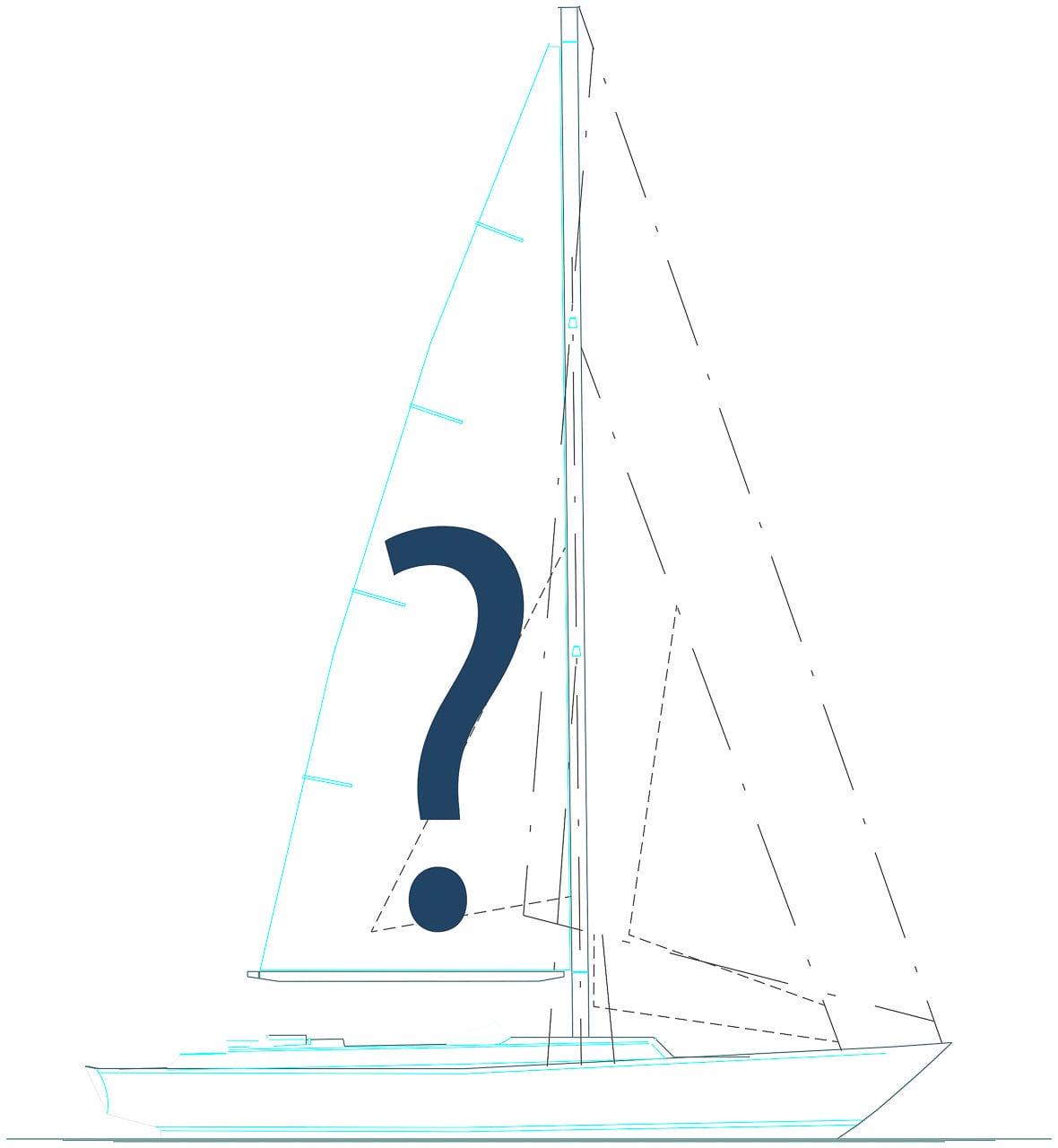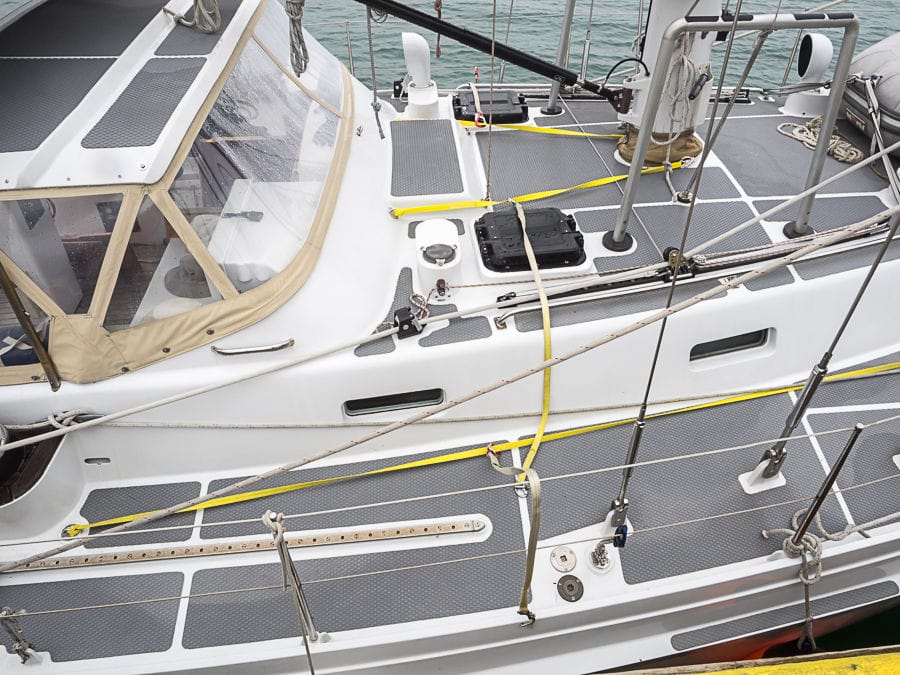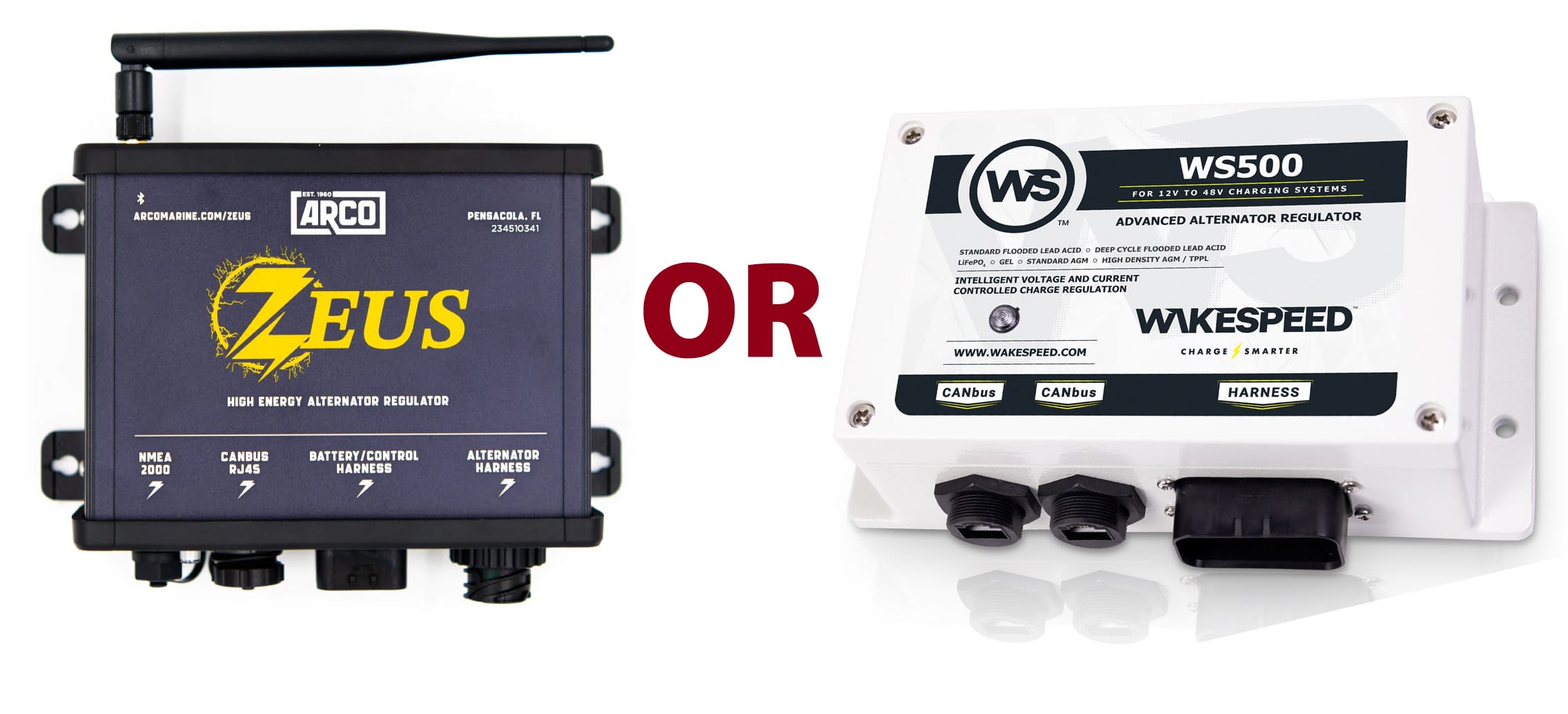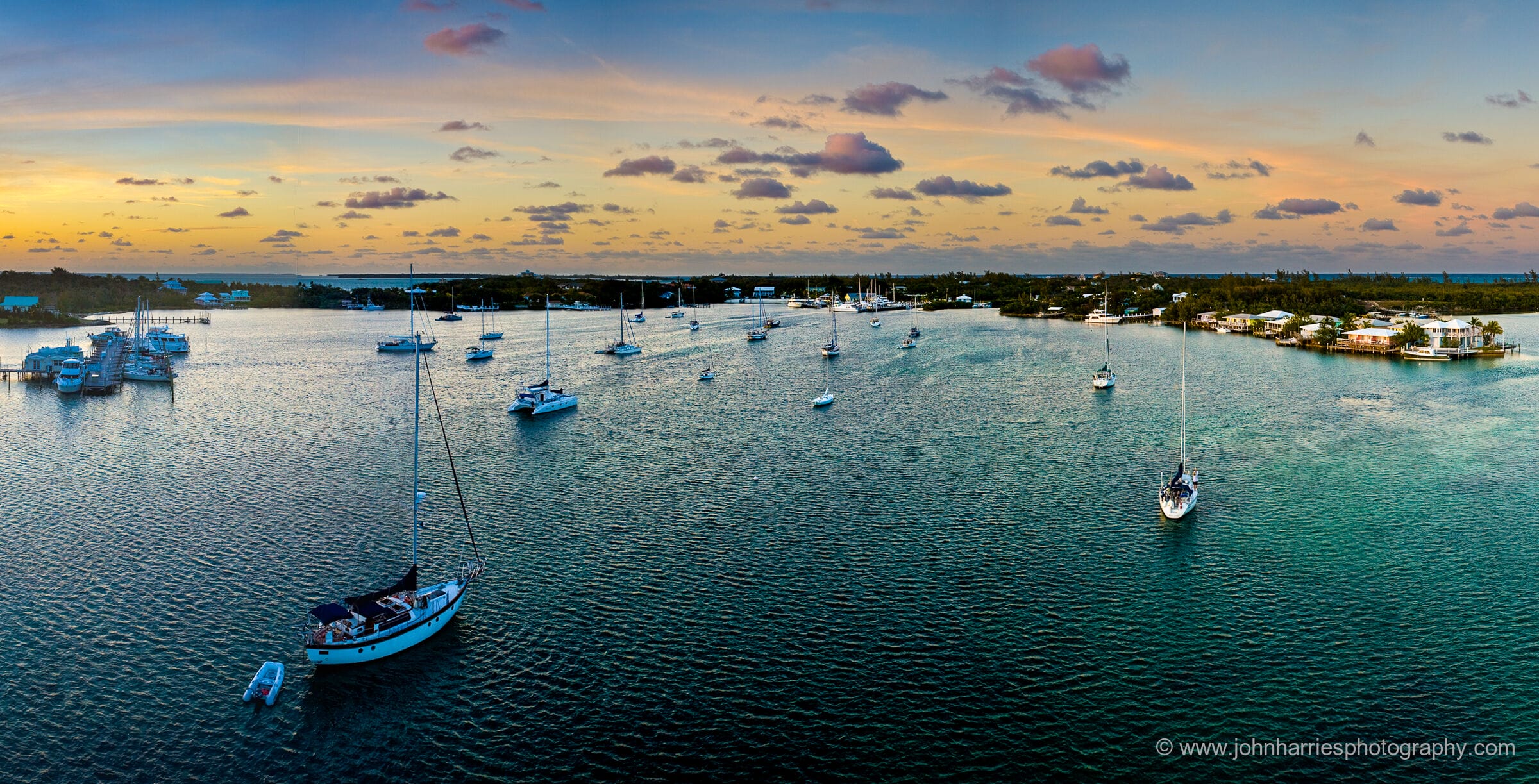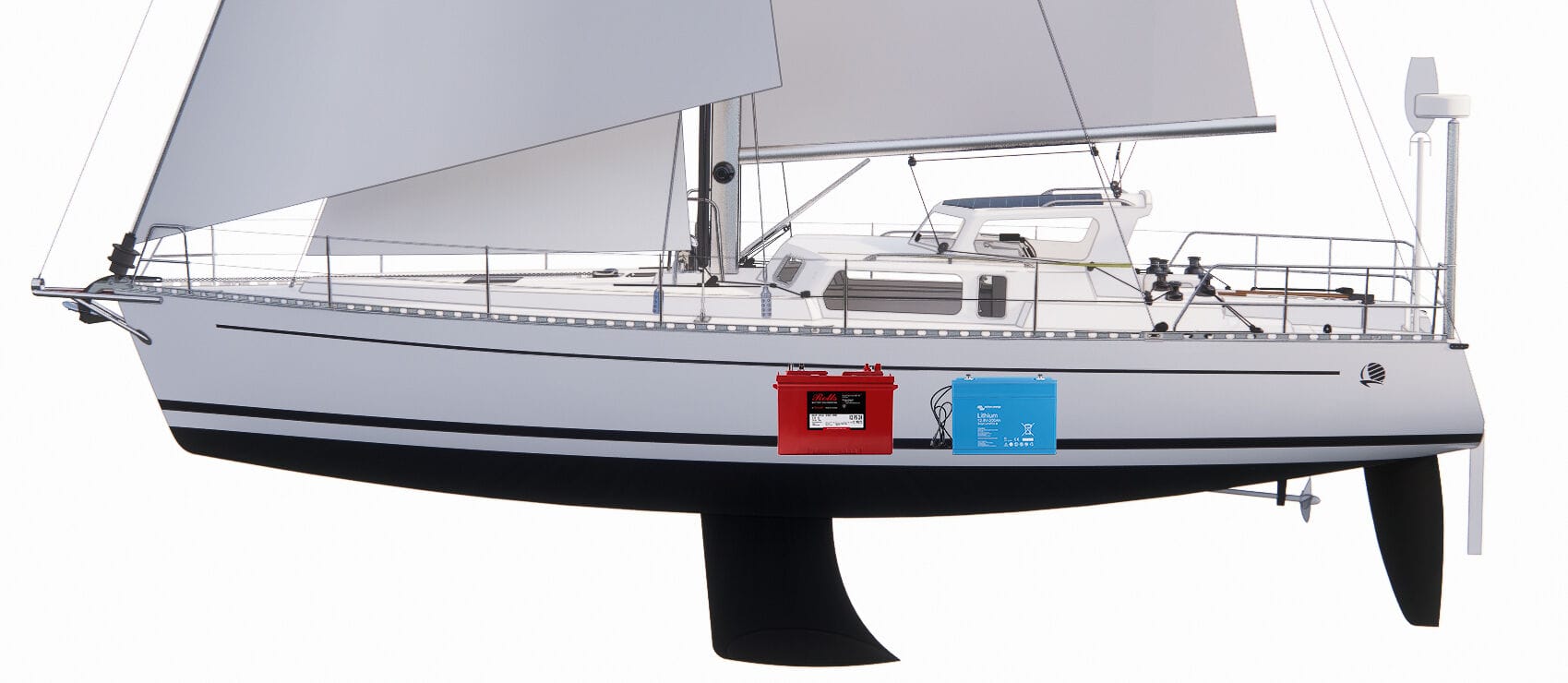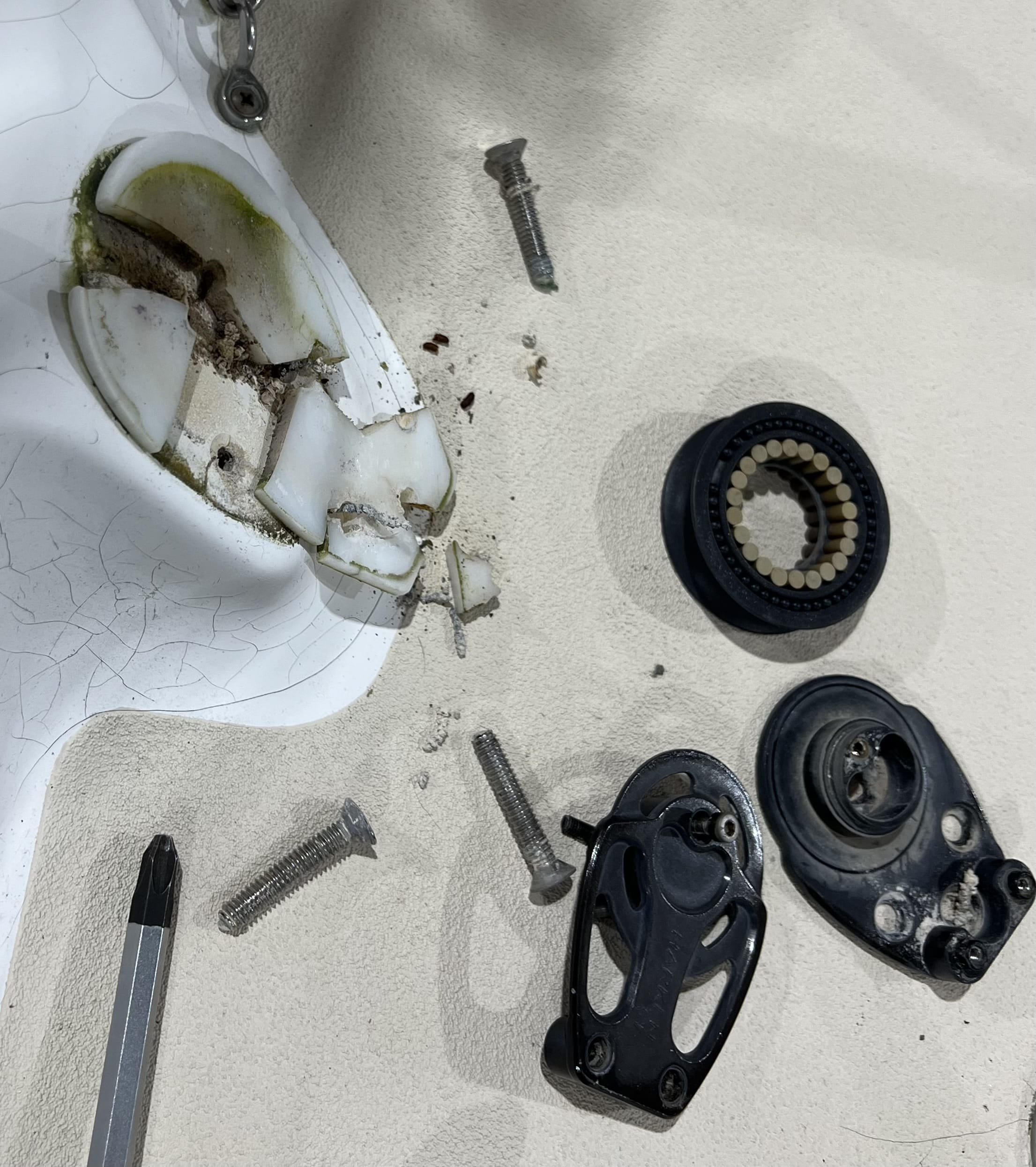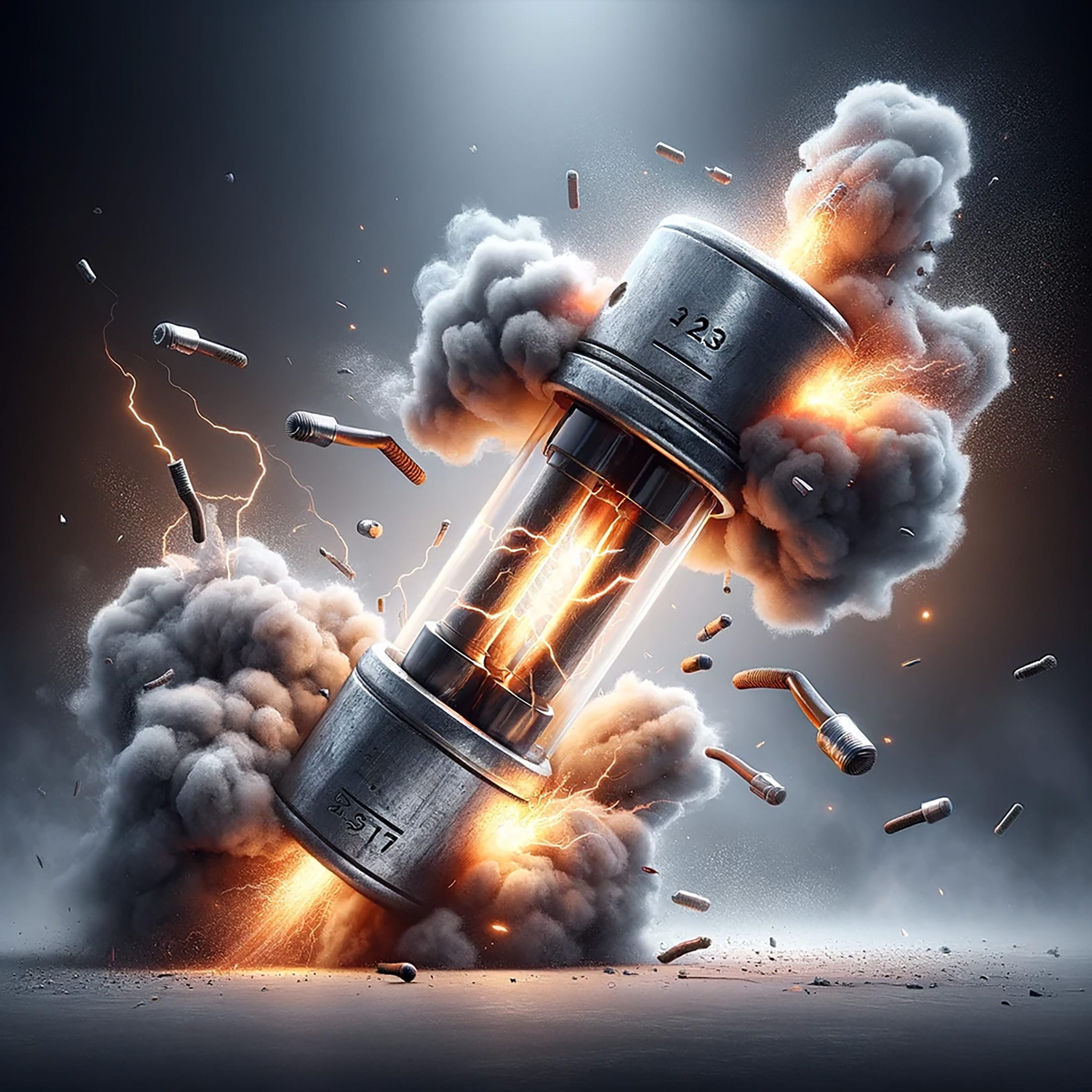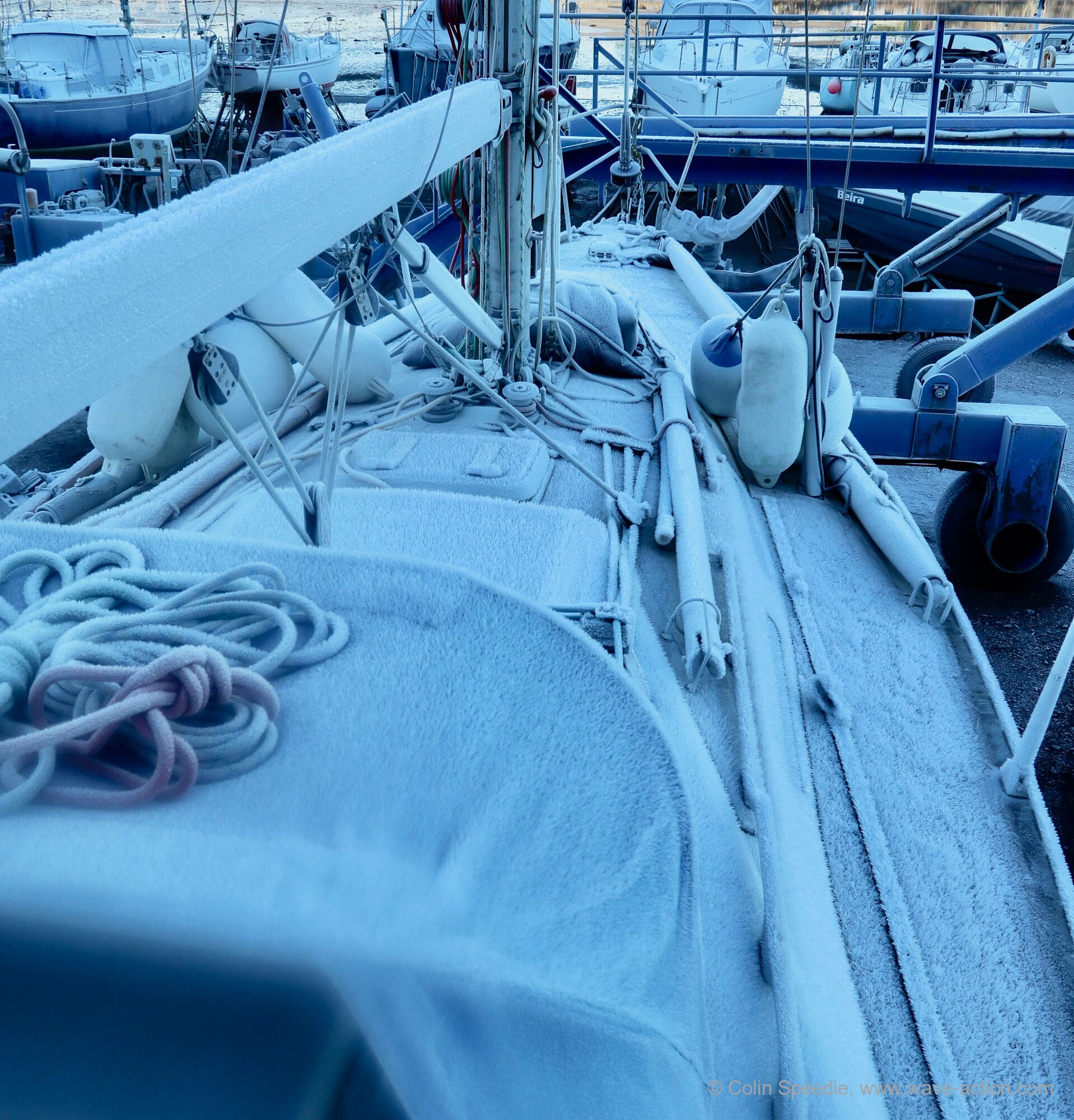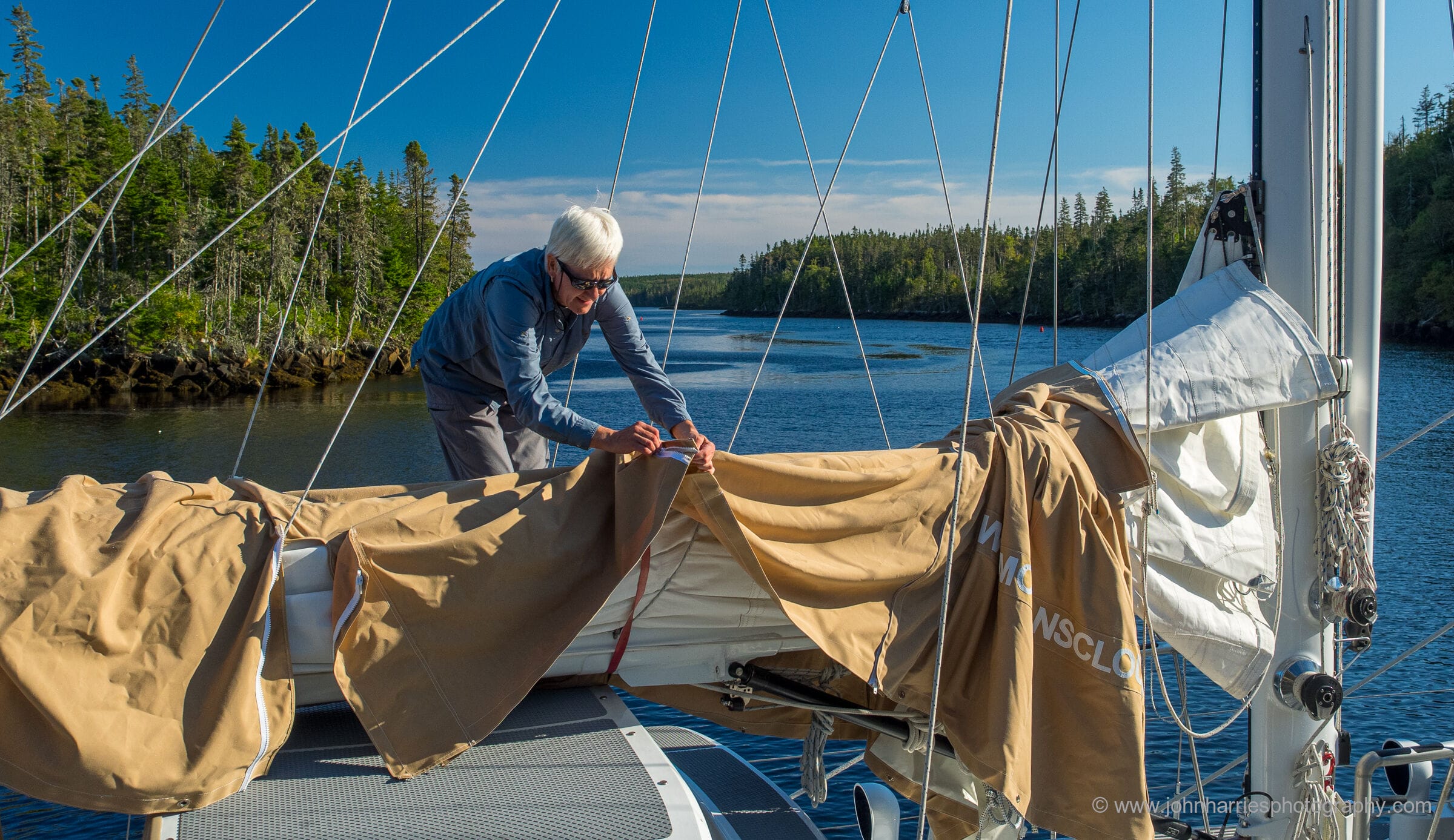MEMBERS
Click for TOC or scroll down for details
Articles in this topic:
- Right Sizing an Alternator
- Multihull and Monohull Storm Tactics Compared
- Catamaran, Trimaran, or Monohull—Capsize Risk
- Jackline Usage Thoughts
- Catamaran, Trimaran, or Monohull—Motion Comfort
- Limiting COB Drag Risk On A Smaller Boat
- Sail Buying Tips
- Radar Collision Avoidance, Part 2—Turning Plotting Into Action
- Flawed Jackline Systems Revisited
- Radar Collision Avoidance, Part 1—Plotting
- TeamO Backtow Lifejacket/Harness Review
- 20 Practical Tips For Better Watchkeeping
- Reefing Tips
- 6 Tips For Mindful Watchkeeping
- How Many Reefs and How Deep?
- The Risks Of Sidedeck Jacklines Quantified
- 11 Tips For A Good Watch System
- Building a Robust and Practical Hard Dodger
- Tether Tension On A Dragging Crew Overboard
- 8 Offshore Cruising Boat & Gear Evaluation Tips
- Rigging Tips Part 2
- Spinlock Deckvest 6D Review
- Safe and Easy Offshore Sailing—When to Reef, Part 2
- Electrical Tips
- Why We Don’t Recommend Boom Brakes
- Safe and Easy Offshore Sailing—When to Reef, Part 1
- Building A Safer Boom Preventer, Part 3—The Details
- A Small-Boat Anchoring System
- When Is A Cruising Sailboat Too Big?
- Is Your Engine Properly Fused?
- Better Jacklines
- Building A Safer Boom Preventer, Part 2—Line and Gear Strength Calculator
- Building A Safer Boom Preventer, Part 1—Forces and Angles
- Surviving Storms While Coastal Cruising—21 Preparation Tips
- Rebuilding a Cobra Yacht Steering System—Reassembly
- Surviving Storms While Coastal Cruising—9 Tips for Anchorage and Harbour Selection
- Rebuilding a Cobra Yacht Steering System—Disassembly and Inspection
- Surviving Storms While Coastal Cruising—12 Strategy Tips
- 10 Reasons Why Hybrid Lithium Lead-Acid Systems are a Bad Idea
- Converting a Racing Sailboat to a Fast Cruiser—Performance and Rig
- Hurricane Mooring Weight Recommendation
- Lithium Buyer’s Guide—Budget: Economy Options
- Applying Power and Torque
- Hurricane Mooring Pennant Photo Article
- Understanding Power and Torque
- Lithium Buyer’s Guide—Budget: High End System
- Close to Home, Yet Far Away
- Wakespeed WS500 Compared To ARCO Zeus—What Matters
- 63 Cruising Boat Maintenance Tips
- Adventure 40 Electrical System—Part 1, Voltage and Batteries
- Deck Hardware Mounting Photo Essay
- Lithium Battery Buyer’s Guide—Fusing
- The Rolling Refit Continues
- Lithium Batteries Buyer’s Guide—Current (Amps) Requirements and Optimal Voltage
- The Zen of Sail Covers
- Lithium Batteries Buyer’s Guide—Balancing and Monitoring
- Selecting The Right Hull Form
- Lithium Batteries Buyer’s Guide—BMS Requirements
- Why We Have an eWincher on a Small Boat
- Electronic Chart Dangers
- Review of Ocean Signal PLB3 Against MOB1
- Weather Analysis—Part 2, Strategic
- Weather Analysis—Part 1, Tactical
- Yes, You Can Have an Offshore Sailboat For Less Than $US100,000
- Spade Anchor Failure, Update and Summary
- Weather Analysis—Hardware and Software
- Bilge Alarms And Monitoring
- Bent Spade Anchor Analysis
- 9 Tips to Assess Weather Forecast Accuracy
- Easily Driven Boats Are Better
- Sailing a New-To-Us Boat Home—What Could Go Wrong?
- Replacing Diesel-Generated Electricity With Renewables, Part 2—Case Studies
- Replacing Diesel-Generated Electricity With Renewables, Part 1—Loads and Options
- How Weight Affects Boat Performance and Motion Comfort
- Adventure 40 Cockpit 2.0
- Falmouth For Orders
- Watt & Sea Hydrogenerator Buyer’s Guide—Cost Performance
- To Sea At Last
- 10 Tips To Save Your Engine From Overheating
- Safety Inspection and Gear For a New-To-Us Boat
- Fire Extinguishers We Have Bought and Stuff We Learned
- Liferafts For Cruisers—Positioning and Mounting
- Starting With The Basics On A New-To-Us Cruising Boat
- Going Up The Mast—More Improvements
- Liferafts For Cruisers—40 Years of Real-World Experience
- Nine Autopilot Usage Tips and Hacks
- Liferafts For Cruisers—Purchase Criteria
- How To Tune An Autopilot To Steer Better—Part 2
- Finding and Buying a Dream
- Adventure 40 Deck-2.0
- How To Tune an Autopilot to Steer Better—Part 1
- Autopilot Buyer’s Guide
- Storm Strategy—Fore-Reaching
- Colin and Louise Have a New Boat
- Eight Steps to Get Ready For Lithium Batteries
- Q and A—Trucking a Boat
- A Real World Tested Tool Kit For Cruisers
- Five Boat Lift Usage Tips
- Adventure 40 Reveal—Salon and Forward Cabin
- Balancing Battery Bank and Solar Array Size
- Going Up The Mast at Sea
- Adventure 40 Reveal—Galley, Head, and Aft Storage
- Gear Leveling and Mounting Hack
- Going Up The Mast—Four Dangerous But Common Mistakes
- How To Do Amateur Engineering¹
- Going Up The Mast—Our System
- Going Up The Mast—Fundamentals
- Adventure 40 Reveal—On Deck
- Going Up the Mast—An Industrial Fall Prevention Approach
- Adventure 40 Reveal—Hull, Cockpit, and Rig
- In-Mast, In-Boom, or Slab Reefing —Performance, Cost and Safety
- In-Mast, In-Boom, or Slab Reefing—Convenience and Reliability
- Cross-Bank Battery Charging—DC/DC Chargers
- Cross-Bank Battery Charging—Splitters and Relays
- Battery Bank Separation and Cross-Charging Best Practices
- How Hard Can We Charge Our Lead-Acid Batteries?
- Choosing & Installing Battery Switches
- Battery Containment—Part 1
- 5 Safety Tips For Working on Boat DC Electrical Systems
- Building a Seamanlike Lithium Battery System
- Two More Shore Power Safety Upgrades
- 9 Tips To Select Seamanlike Gear
- Download Cruising Sailboat Rig Checklist
- When Stuff Goes Wrong At Sea
- 8 Tips To Prevent Lithium Battery Black Outs
- Why Lithium Battery Load Dumps Matter
- Cruising Sailboat Roller Furler and Track Inspection
- Positioning of Wood Plugs For Seacocks
- The True Price of Autopilots & Vane Gears
- Cruising Sailboat Rig Wiring and Lighting Inspection
- 7 Checks To Stop Our DC Electrical System From Burning Our Boat
- 11 Self-Steering Vane Gear Installation and Usage Tips
- Why Most New-To-Us Boat Electrical Systems Must Be Rebuilt
- Cruising Sailboat Running Rigging Inspection
- 12 Cruising Boat Maintenance Tips
- WakeSpeed WS500—Best Alternator Regulator for Lead Acid and Lithium Batteries
- Cruising Sailboat Standing Rigging Inspection
- Cruising Sailboat Spar Inspection
- Test Sail and Review of The Boréal 47.2
- Going Alongside (Docking)—12 More Tips and Tricks
- John Goes Sailboat Racing and Learns Stuff
- Protecting Our Boat’s Underwater Metals From Corrosion
- Going Alongside (Docking) in Current—Backing In
- Details Matter—Engine Failure at Sea
- Going Alongside (Docking) in Current—Turning in Confined Spaces
- Going Alongside (Docking) in Current—Fundamentals
- Helping a Member Choose an Anchor
- A Good First Aid Kit
- Why I Won’t Power Our Boat With a Portable Generator
- Setting and Striking a Spinnaker Made Easy and Safe
- Check Your Boat Shore Power System
- Our New Boat Selection Process—Fitness For Mission
- Cruiser’s Tool Kit—Wrenches
- 29 Tips To Get Insurance For Offshore Voyaging—Negotiating Cover
- 29 Tips To Get Insurance For Offshore Voyaging—Us and Our Boat
- Cruiser’s Power Tool Kit
- Leaving a Dock Against an Onshore Wind—Part 2
- Leaving a Dock Against an Onshore Wind—Part 1
- Getting Insurance For Offshore Voyaging—Understanding The Problem
- 14 Tips To Come Alongside Single-Handed—Part 2
- 14 Tips for Coming Alongside Single-handed—Part 1
- Integrating and Documenting NMEA 0183 and 2000 Networks
- Two More Anchor Selection Criteria
- Making Anchor Tests More Meaningful
- Choosing A Cruising Boat—Shade and Ventilation
- When Electric Drive Works For a Cruising Sailboat
- Roller Furling Headsail Risks and Rewards
- Choosing a Cruising Boat—Shelter
- Q&A—Sailboat Performance, When The Numbers Fail
- Offshore Sailboat Winches, Selection and Positioning
- Best Offshore Boat Cockpit Cushions
- Buying a Boat—A Different Way To Think About Price
- Safety: We Can’t Do Or Even Learn About It All
- Cockpits—Part 2, Visibility and Ergonomics
- Cooking Options For Live-aboard Voyagers—Part 2, Liquid Fuel
- Cooking Options For Live-aboard Voyagers—Part 1, Electric
- Cockpits—Part 1, Safe and Seamanlike
- Should Your Boat’s DC Electrical System Be 12 or 24 Volt?—Part 2
- Should Your Boat’s DC Electrical System Be 12 or 24 Volt?—Part 1
- Topping Lift Tips and a Hack
- The Danger of Voltage Drops From High Current (Amp) Loads
- Rigid Vangs
- Maretron—Better NMEA 2000 Cabling
- Is Induction Cooking For Boats Practical?
- eWincher Electric Winch Handle Review—Part 3, Reliability and Summary
- eWincher Electric Winch Handle Review—Part 2, The Competition
- eWincher Electric Winch Handle Review—Part 1, Our Testing
- Second Level Thinking About Offshore Voyaging Boats
- SeaAngel SA15 AIS Crew Overboard Beacon Compared to The Ocean Signal MOB1
- Sailboat Deck Layouts
- US$30,000 Starter Cruiser—Part 2, The Boat We Bought
- US$30,000 Starter Cruiser—Part 1, How We Shopped For Our First Cruising Sailboat
- Washing Machines: Complexity and Space Considerations
- Planning a Refit— Keel Removal and Inspection
- Q&A Backing Out of a Bow-In Med Moor
- Two New Designs From Boréal
- Stupid Alternator Regulators Get Smarter…Finally
- Sail Area: Overlap, Multihulls, And Racing Rules
- Torquing Keel Bolts
- Refits—The Radical Option
- Non-Destructive Testing of Keel Bolts
- Cruising Rigs—Sloop, Cutter, or Solent?
- Offshore Sailboat Keel Types
- Outbound 46 Review—Part 2, Keel, Rudder, Bow Thruster, and Construction
- Planning and Budgeting an Engine Rebuild or Replacement
- Outbound 46 Review—Part 1, Hull Form
- Planning a Refit—Upfront Costs
- ShoreFasts—Part 3, The Gear
- ShoreFasts—Part 2, Example Setups Plus Tips and Tricks
- ShoreFasts—Part 1, When to Use Them
- Planning a Refit—Rudders, Repair or Replacement
- Planning a Refit—The Problem With Rudders
- Yawing at Anchor, The Theory and The Solution
- Planning a Refit—Boat Parameters
- Retrieval of Dyneema (Spectra) Series Drogues Solved
- Planning a Refit—It’s a Lot About You
- Anchoring—Chain: Stoppers, Termination and Marking
- A Sail Away Offshore Cruising Boat For Less Than US$100,000—Best Hull Material
- Anchoring—Kellets
- A Sail Away Offshore Cruising Boat For Less Than US$100,000—Rudders and Keels
- A Sail Away Offshore Cruising Boat For Less Than US$100,000—Decks, Hulls and SS Fittings
- Anchoring—Snubbers
- A Sail Away Offshore Cruising Boat For Less Than US$100,000—Introduction
- Four Hand Tools I Should Have Bought Years Ago
- The Garcia Exploration 45 Compared to The Boréal 47—Part 5, Interior, Summary and Price
- The Garcia Exploration 45 Compared to The Boréal 47—Part 4, Inside Watch Stations
- Insanely Cool Anchorage Toys
- The Garcia Exploration 45 Compared to the Boréal 47—Part 3, Hull and Build
- Passage Anchorages
- The Garcia Exploration 45 Compared to the Boréal 47—Part 2, Deck and Cockpit
- The Garcia Exploration 45 Compared to the Boréal 47—Part 1, Introduction and Rig
- Ultra Anchor Review
- Which is Best For Navigation: Plotter, Computer or Tablet?
- Buying a Boat—Never Say Never
- New Satellite Communications Systems
- What We Need to Know About Moisture Meters and Wet Fibreglass Laminate
- Buying a Fibreglass Boat—Hiring a Surveyor and Managing the Survey
- A Useful, But Potentially Deadly, Feature of Navigation Apps and Plotters
- Buying a Cruising Boat—Five Tips for The Half-Assed Option
- 12 Electronic Navigation Tips From a Cruise on Someone Else’s Boat
- Coastal Passages, Part 5—On To The Finish
- You May Need a Bigger Boat Than You Think
- Costal Passages, Part 4—Keep On Plugging
- Six Things We Need to Check Before Survey
- Series Drogues: Learning From Randall Reeves
- Coastal Passages, Part 3—Off We Go
- Why Are Saildrives Even A Thing?
- Coastal Passages, Part 2—Rounding Headlands
- Six Things We Can Learn From A Night Approach That Ended on a Lee Shore
- Coastal Passages, Part 1—Making a Plan, 10 Tips
- Six Warnings About Buying Fibreglass Boats
- Rocna Resetting Failures and Evaluation of Vulcan and Mantus
- Learn From The Designers
- Refitting an Old Boat Can Work…For Some
- Specifying Primary Anchor Size
- SPADE, SARCA Excel, or Some Other Anchor?
- UV Protection For Roller Furling Sails
- Nigel Calder’s Integrel, Part 2—Is It Really Better Than a Generator?
- Nigel Calder’s Integrel, Part 1—What You Need To Know
- SARCA Excel Anchor—A Real World Test
- Cruising Boat Electrical System Design, Part 3—Specifying Optimal Battery Bank Size
- Cruising Boat Electrical System Design, Part 2—Thinking About Systems
- Cruising Boat Electrical System Design, Part 1—Loads and Conservation
- Alternatives to Chainplates For Drogue Attachment…Or Not
- Stuff We Gotta Do—The Anchor Roller Version
- Ocean Passaging—Turning Back Is Hard To Do
- Anchor Chain Catenary, When it Matters and When it Doesn’t
- Which Old Salts Should We Listen To? 10 Ways To Decide—Part 2
- Colin on Anchoring
- Which Old Salts Should We Listen To? 10 Ways To Decide—Part 1
- Storm Survival FAQ
- AIS Crew Overboard Beacons—Setting Up The Boat Alarms Right
- Just Get a Series Drogue Designed By Don Jordan…Dammit!
- Amidships “Preventers”—A Bad Idea That Can Kill
- Rogue Waves Are Not Bad Luck
- 5 Ways We Are Updating Our Thinking On Fire Fighting
- Battery Monitors, Part 3—Calibration and Use
- Battery Monitors, Part 2—Recommended Unit
- Battery Monitors, Part 1—Which Type Is Right For You?
- Battle Testing a Jordan-Designed Series Drogue—Round 2
- Rigging Tips Part 1
- 10 Things That Are Common On Offshore Cruising Boats…But Shouldn’t Be
- Rig Tuning, Part 5—Sailing Tune
- Battery Bank Size and Generator Run Time, A Case Study
- Rig Tuning, Part 4—Mast Blocking, Stay Tension, and Spreaders
- Rig Tuning, Part 3—6 Steps to a Great Tune
- Rig Tuning, Part 2—Understanding Rake and Bend
- Rig Tuning, Part 1—Preparation
- Battery Options, Part 2—Lead Acid
- Battery Options, Part 1—Lithium
- Two Dangerous Rigging Mistakes
- Boréal Yachts—Looking To The Future
- Boréal Yachts—Eight Years On
- 8 Things I Learned From a Lazy Man’s Galley Makeover
- Time to Stop Using And Selling Tethers with Gibb-style Hooks
- Crew Overboard Recovery—Our Replacement For Quick Stop
- Crew Overboard Recovery, Is The Quick Stop Bogus?
- Which Lifejacket Auto-Inflator Should We Select?
- Should We Wear Lifejackets or Harnesses, Both, Neither?
- Apps to Manage Boat Maintenance and Cruises
- Managing Boatyard Costs—Part 2
- Managing Boatyard Costs—Part 1
- Smartphone (CrewWatcher) or AIS-Based Crew Overboard Beacons?
- Severe Weather Probability Forecast Product
- Coming Alongside (Docking)—Backing In, Part 2
- Coming Alongside (Docking)—Backing In, Part 1
- Surviving The Boatyard—Part 2
- Surviving The Boatyard—Part 1
- Running Rigging Recommendations—Part 2
- Weather Routing In Action
- Running Rigging Recommendations—Part 1
- 29 Aluminum Boat Care Tips—Part 3
- Automated Weather Routing—Part 1, The Tools
- 29 Aluminum Boat Care Tips—Part 2
- Q&A, Coming Alongside (Docking) With Twin Rudders
- 29 Aluminum Boat Care Tips—Part 1
- Seven Skills We DON’T Need to Go Cruising
- The Golden Globe Race—The Boats and the Refits
- We Love The Way Our Anchor Drags
- Iridium GO! and UUPlus, Real World Use Review
- Watt & Sea Hydro Generator Review
- Can We Really Be Seen By Ships at Night?
- Crew Overboard Prevention—Use of Climbing Harnesses
- Coming Alongside (Docking)—Taming the Wind
- Coming Alongside (Docking)—The Final Approach
- Coming Alongside (Docking)—Manoeuvring in Close Quarters
- Battle Testing a Jordan-Designed Series Drogue—Round 1
- Get-Home Backup For Offshore Motorboats—Part 3, The Winner
- Get-Home Backup For Offshore Motorboats—Part 2, The Options
- Get-Home Backup for Offshore Motorboats—Part 1, Is It Even a Thing?
- Boat Heating—Part II
- Determining When Heaving-To Is Dangerous
- 10 Ways to Make Your Boat Easier to Bring Alongside a Dock
- Boat Heating—Part I
- Rigging The Spring That Makes Docking Easy, Or an Alternative
- Coming Alongside (Docking) in 4 Easy Steps
- Transitioning From Heaved-to To a Series Drogue
- Series Drogue Durability Problems
- The Right Tethers To Keep Us Aboard—Part 2, Construction and Hardware
- The Right Tethers To Keep Us Aboard—Part 1, A Mix
- 8 Radar Use Tips
- Three Tips to Make Your Cruising Boat Fault Tolerant
- 11 Tips for Safe Navigation With Phones and Tablets
- Navigation in Fog—Underway
- Navigation in Fog—Preparation
- Navigating in Fog—The Tools
- The Artnautica LRC 58 Adventure Edition Offshore Motorboat
- Thinking About Better Offshore Motorboats
- Jacklines: Materials, Fabrication and Installation
- The Unknown Unknowns
- An Easy Way to Avoid Engine Failures
- Designing For Dux Rope Rigging—A Paradigm Shift—Part 2
- Dynice Dux, Part 1: Practical Low-Stretch Rope Rigging For Offshore Sailboats
- What Marine Engine Duty Ratings Mean To You
- A Sailor’s Cockpit Enclosure—Part 2
- A Sailor’s Cockpit Enclosure—Part 1
- Keeping Things Tasty—Tips For Food Storage (With No Refrigeration) & Meal Preparation
- Keeping Things Tasty—A 36,000-Mile Lesson In Provisioning
- The Perfect Anchor Roller
- The Three Keys To Cruising Happiness
- Q&A—Are Battery Desulphators a Good Idea?
- Hoisting the Mainsail Made Easy—Simplicity in Action
- Ten Tips To Fix Weather Helm
- How Batteries Charge (Multiple Charging Sources Too)
- Maiden Voyage of The Boreal 55—What Worked and What Didn’t
- One Simple Law That Makes Electrical Systems Easy to Understand
- Things I’ve Learned From Three Refits That Will Help You
- Giving a Tough Old Ocean Greyhound a New Purpose
- Refitting a Wauquiez Hood 38
- A Trans-Atlantic Boat For Less Than US$100,000
- How To Select The Best Power and Propeller Settings For Your Engine
- How To Stop Killing Your Engine With Kindness
- Controllable Pitch Propellers (CPPs)
- The Ultimate Guide to Using Iridium Handsets and GO!
- Going Cruising—Being Realistic About You, 4 Tips
- Iridium GO! Review—6 Myths Busted and a Purchase Recommendation
- 4 Great Tips From a Professional Meteorologist
- Mooring Your Dinghy While Ashore, Made Easy
- “Eala Bhan” Sails Home, Part III
- Keeping Safe From Chart Inaccuracies
- “Eala Bhan” Sails Home, Part II
- Five Tips For Choosing Weather Information to Believe…And Pay For
- “Eala Bhan” Sails Home—The Maiden Voyage of The Boréal 55
- Marine Electronics Recommendations—Communications
- Marine Electronics System Recommendations
- Two Tips to Make Your First Ocean Passage as Skipper Safe and Fun
- Anchor Tests—The Good, The Bad, and The Downright Silly
- Cutter Rig—Optimizing and/or Converting
- Cutter Rig—Should You Buy or Convert?
- 12 Reasons The Cutter Is A Great Offshore Voyaging Rig
- Propeller Efficiency
- Ten Ways to Make Propane Safer
- Boat Maintenance—Don’t Go Broke Saving Money
- Boréal 47—An Owner’s Experience
- Third Anchors, Storm Anchors and Spare Anchors
- Understanding An Engine Fuel Map
- Better Powertrains For Auxiliary Sailboats and Motorboats
- Downwind Sailing—Poling Out The Jib
- Downwind Sailing, Tips and Tricks
- Kedge (Secondary Anchor)—Recommended Type and Size
- Boat Maintenance—What’s Your Screwup Tolerance?
- Tools and Techniques For Managing Dissimilar Metals on Cruising Boats
- The Crazy Fools…Who Don’t Drown
- The Only Five Knots You Need to Know
- Attainably Adventurous Children
- Marine Electronics Recommendations—Radar
- Yawing at The Anchor, an Alternative Cure
- Spare Parts—Which To Buy and How To Keep Track Of Them
- Reefing From The Cockpit 2.0—Thinking Things Through
- The Secret Life Of Your GPS
- Getting Your Mojo Back
- A Real Sailor’s Motorboat Launched
- The Two Biggest Lies Yacht Brokers Tell
- Q&A: Safety of Large Pilothouse Windows
- Download Your Gift eBook
- Rustler Yachts: Maybe There’s Hope Yet?
- The Loss of “Team Vestas Wind”
- 9 Tips To Make Unstepping a Sailboat Mast Easier
- Our Mainsail Is Our Friend
- 6 Tips To Stop Marine Electronics From Ruining Your Cruise
- Perfect or Good Enough?
- Staying Attached To The Boat
- Install A Wash-down Pump—And Save Money!
- Motorboating and Sailing Compared—Part 2
- Motorboating and Sailing Compared—Part 1
- Crash Pump
- The Right Way to Buy a Boat…And The Wrong Way
- Estimating The Cost of Maintaining a Cruising Boat
- You Need More Than Money
- The World’s Best Bilge Pump Switch
- Loss of Yacht “Tao”
- Do We Need A Generator?
- Real Numbers For Electric And Diesel-Electric Drives
- Five Ways That Bad Boats Happen
- Backup Systems
- Do You Still Need Paper Charts?
- Protecting Against Lightning Strikes
- John & Phyllis’ 36 Immutable Rules of Seamanship
- Lithium Ion Batteries Explained
- Two Yacht Losses, Many Lessons Learned
- 20 Tips To Get Anchored and Stay Anchored
- 10 Tips To Install An Alternator
- 10 Tips to Help You Get Out There Cruising
- Artnautica 58—Design Analysis
- Design Parameters For an Ideal Sailor’s Motorboat
- Selecting a Chain Grade
- Mainsail Handling Made Easy with Lazyjacks
- Do We Need Watertight Bulkheads?
- Impact Resistance—Two Collision Scenarios
- Impact Resistance—How Hull Materials Respond to Impacts
- The Real Reason to Use a Harness and Tether
- A Sailor’s Motorboat
- Characteristics of Boat Building Materials
- Summary And Conclusions For Heavy Weather Offshore Section
- Companionway Integrity In A Storm
- Real Life Storm Survival Story
- Storm Survival Secret Weapon: Your Engine
- Surviving A Lee Shore
- Series Drogues: Learning From Tony Gooch
- Jordan Series Drogue Retrieval—An Alternative From Hal Roth
- Jordan Series Drogue Attachments And Launch System
- Jordan Series Drogue Retrieval System
- When Heaving-To Is Dangerous
- Heaving-To
- 8 Tips For a Great Cruising Boat Interior Arrangement
- Cycle Loading—8 Tips for Boat and Gear Purchases
- Electric or Diesel-Electric Drives for Voyaging Boats
- Two Anchors Done Right
- Cyclical Loading: Why Offshore Sailing Is So Hard On A Boat
- Harnesses and Lifejackets and How to Use Them
- Keeping The Water Flowing
- The Risks of Falling Overboard at Sea
- Is It a Need or a Want?
- One Anchor or Two?
- Hydro Power
- Solar Power
- Wind Generators
- Renewable Power
- A Dangerous Myth about Reefing
- Choosing a Spot
- Laziness Never Goes Unpunished
- Pitfalls to Avoid When Buying a New Voyaging Boat
- The Case For Roller-Furling Headsails
- Are Refits Worth It?
- The Case For Hank On Headsails
- Thinking About a Steel Boat?
- A Reluctant Voyager?
- Tips For Receiving Weather Forecasts
- New Engine, The Proof is in The Voyage
- Tips For Receiving GRIBs
- Choosing an Anchorage
- Tips For Receiving Weather Fax
- It’s A Forecast, Not A Prophecy
- The Importance Of The Big Picture
- A Windlass That Makes The Grade
- Things to Know About Anchor Chain
- Serve Your Apprenticeship
- Priorities In Preparation
- Making Life Easier—Roller Reefing/Furling
- Clear The Decks For Action
- Making Life Easier—Storm Jib
- How To Use An Anchor Trip Line
- The Beauty Of Simplicity
- Chart Plotters And Autopilots, Never The Twain Should Meet
- Perkins M92B, Initial Report Card
- Equalizing Batteries, The Reality
- Storm Preparation, All Chain On Deck
- Anchor Swivels, Just Say No
- Q&A: Hybrid Rope And Chain Anchor Rodes
- AC Chargers For Lead Acid Batteries
- How Lead Acid Batteries Get Wrecked and What To Do About It
- Engine Installation—The Devil Is In The Details
- Test Sail On A Boréal 44
- Rudder Options
- Boréal 44 Design
- A Boat Designed For The High Latitudes
- New Engine For “Morgan’s Cloud”—What We Chose
- Selection Criteria For The New Engine For “Morgan’s Cloud”
- Three Navigation Mistakes That Can Wreck You
- Knowing Where It’s At
- Boréal Sailboats–An Introduction
- Don’t Forget About The Sails
- Managing Ocean Currents
- Gale And Storm At Anchor Or On A Mooring Check List
- Swept-Back Spreaders—We Just Don’t Get It!
- Carbon Fiber Masts and Lightning: Myths, Assurances And Risks
- Carbon Fiber Mast, Costs and Benefits
- The Benefits Of Carbon Fibre Masts
- How To Home Build a Hard Dodger For an Offshore Sailboat
- Cockpit Dodger For an Offshore Sailboat
- Q&A: Staysail Stay: Roller Furling And Fixed Vs Hanks And Removable
- Anchor Rode Questions and Answers
- There’s No Excuse For Pounding
- A Motorsailer For Offshore Voyaging?
- At What Age should You Stop Sailing And Buy a Motorboat?
- It’s Often Better to Anchor Than Pick Up a Mooring
- Reefing Questions and Answers
- A Prairie Woman Goes To Sea
- Taming The Wimp Within
-
Right Sizing an Alternator
22 CommentsReading Time: 12 minutesMembersRead more: Right Sizing an AlternatorReplacing the stock alternator on our engine is one of the most useful upgrades to a cruising boat but how can we make sure bigger is not too big?
-
Multihull and Monohull Storm Tactics Compared
55 CommentsReading Time: 8 minutesMembersRead more: Multihull and Monohull Storm Tactics ComparedStorm tactics differ between monohulls and multihulls, so here’s a look at each of the ways to survive a storm at sea, with the benefits and drawbacks of each depending on the number of hulls.
-
Catamaran, Trimaran, or Monohull—Capsize Risk
49 CommentsReading Time: 10 minutesMembersRead more: Catamaran, Trimaran, or Monohull—Capsize RiskWhenever multihulls are discussed, capsize risk is sure to come up, but monohulls have that problem too, just for different reasons.
-
Jackline Usage Thoughts
10 CommentsReading Time: 6 minutesMembersRead more: Jackline Usage ThoughtsI have written a huge amount about hardware and techniques to reduce the risk of falling overboard, but just as important is coming up with our own usage rules.
-
Catamaran, Trimaran, or Monohull—Motion Comfort
68 CommentsReading Time: 12 minutesMembersRead more: Catamaran, Trimaran, or Monohull—Motion ComfortAre catamarans really more comfortable than monohulls? What about trimarans? Like with most things, it depends.
-
Limiting COB Drag Risk On A Smaller Boat
23 CommentsReading Time: 10 minutesMembersRead more: Limiting COB Drag Risk On A Smaller BoatAs boats get smaller, building a system gets more difficult and more compromises must be made, but it is doable.
-
Sail Buying Tips
0 CommentsReading Time: < 1 minuteMembersRead more: Sail Buying TipsNew sails are expensive, here’s how to get the most for your money.
-
Flawed Jackline Systems Revisited
13 CommentsReading Time: 10 minutesMembersRead more: Flawed Jackline Systems RevisitedIn the last chapter we examined the risks of being dragged and particularly tether tension. Now let’s relate that to the jackline systems we see out there in use.
-
TeamO Backtow Lifejacket/Harness Review
14 CommentsReading Time: 6 minutesMembersRead more: TeamO Backtow Lifejacket/Harness ReviewTeamO are selling the BackTow lifejacket and harness as the answer to the risk of drowning while being dragged after falling overboard attached to a tether. Is that true? Let’s take a look. We also compare the TeamO against the Spinlock Deckvest.
-
20 Practical Tips For Better Watchkeeping
29 CommentsReading Time: 11 minutesMembersRead more: 20 Practical Tips For Better WatchkeepingHard won practical tips from 50 years of standing watches at sea.
-
Reefing Tips
0 CommentsReading Time: < 1 minuteMembersRead more: Reefing TipsRelevant reefing tips, which we will add to over time.
-
6 Tips For Mindful Watchkeeping
19 CommentsReading Time: 6 minutesMembersRead more: 6 Tips For Mindful WatchkeepingIt’s all too easy to regard watchkeeping as a hated chore, but these tips will both help to avoid that and make offshore sailors safer and offshore boats less likely to break.
-
How Many Reefs and How Deep?
52 CommentsReading Time: 9 minutesMembersRead more: How Many Reefs and How Deep?How many reefs are optimal? Two, three or four? If we think about this the right way, for most of us the answer is simple. We also tackle the relationship between reefs and whether or not we have a storm trysail, also much misunderstood.
-
The Risks Of Sidedeck Jacklines Quantified
42 CommentsReading Time: 12 minutesMembersRead more: The Risks Of Sidedeck Jacklines QuantifiedDespite the well-documented risks of being dragged after falling overboard, many (probably most) offshore sailboats are still using sidedeck jacklines, raising the key question: Is that solution worse than nothing? At last we have numbers to help each of us make that critical decision.
-
11 Tips For A Good Watch System
37 CommentsReading Time: 8 minutesMembersRead more: 11 Tips For A Good Watch SystemIt’s vital that before we head offshore we really think about the watch system we will use. A poor system can be the start of big problems.
-
Building a Robust and Practical Hard Dodger
30 CommentsReading Time: 9 minutesMembersRead more: Building a Robust and Practical Hard DodgerAdding a hard dodger to an offshore cruising boat. While this dodger was built in aluminum, the techniques and details will be useful for a similar project in any material.
-
Tether Tension On A Dragging Crew Overboard
62 CommentsReading Time: 12 minutesMembersRead more: Tether Tension On A Dragging Crew OverboardWhat really happens when a crew member falls overboard while tethered to the boat? We know this often results in a fatality but there were no in-depth studies to help us reduce the risk. Here’s the first step in fixing that.
-
8 Offshore Cruising Boat & Gear Evaluation Tips
31 CommentsReading Time: 10 minutesMembersRead more: 8 Offshore Cruising Boat & Gear Evaluation TipsWhen we think of going cruising it’s often about exotic locations, warm waters, and palm trees, but the process of getting there requires hundreds of good decisions, or at least minimizing the bad ones.
-
Rigging Tips Part 2
0 CommentsReading Time: < 1 minuteMembersRead more: Rigging Tips Part 2Carrying on from the last chapter in our Rigging and Sails Online Book, here are a bunch more curated and relevant rigging tips.
-
Spinlock Deckvest 6D Review
29 CommentsReading Time: 7 minutesMembersRead more: Spinlock Deckvest 6D ReviewJohn and Phyllis have used lifejackets with built in harnesses from Spinlock for over 20 years. Here’s our review of the latest version.
-
Safe and Easy Offshore Sailing—When to Reef, Part 2
24 CommentsReading Time: 11 minutesMembersRead more: Safe and Easy Offshore Sailing—When to Reef, Part 2More about how to decide when to reef, including a mental hack and specific true wind speed examples, as well as more tips, including which sail first.
-
Electrical Tips
0 CommentsReading Time: 2 minutesMembersRead more: Electrical TipsTips relevant to the Electrical Systems for Cruising Boats Online Book
-
Why We Don’t Recommend Boom Brakes
25 CommentsReading Time: 7 minutesMembersRead more: Why We Don’t Recommend Boom BrakesBoom brakes have never looked right to me, but now I have solid numbers, together with other reasons, to strongly recommend against them. But if you still insist on a boom brake, I have some recommendations.
-
Safe and Easy Offshore Sailing—When to Reef, Part 1
56 CommentsReading Time: 9 minutesMembersRead more: Safe and Easy Offshore Sailing—When to Reef, Part 1Consistently reefing at the right time, particularly when sailing offshore, makes passages easier, safer, and, above all, more fun.
-
Building A Safer Boom Preventer, Part 3—The Details
75 CommentsReading Time: 12 minutesMembersRead more: Building A Safer Boom Preventer, Part 3—The DetailsNow we understand the forces at work, John looks at the details of rigging a strong and easy-to-use preventer system.
-
A Small-Boat Anchoring System
36 CommentsReading Time: 10 minutesMembersRead more: A Small-Boat Anchoring SystemMost of the chapters in this Online Book are about anchoring systems for larger boats. But what about smaller boats? What compromises can we make and still end up with a safe and workable system?
-
When Is A Cruising Sailboat Too Big?
59 CommentsReading Time: 10 minutesMembersRead more: When Is A Cruising Sailboat Too Big?In recent years, cruising boats have got ever bigger, but what’s the safe upper limit, particularly for a shorthanded amateur crew? John used his 30 years of experience voyaging in a 56-foot boat to answer that vital question.
-
Is Your Engine Properly Fused?
21 CommentsReading Time: 5 minutesMembersRead more: Is Your Engine Properly Fused?I think most of us know that our engine start battery should be fused, but what about the rest of the engine harness. John was shocked to find the answer to that question.
-
Better Jacklines
17 CommentsReading Time: 6 minutesMembersRead more: Better JacklinesIn the last two chapters we discovered that the jackline systems most of us use for COB prevention are pretty much useless. Now we are moving on to what to do about that—the good stuff.
-
Building A Safer Boom Preventer, Part 2—Line and Gear Strength Calculator
63 CommentsReading Time: 5 minutesMembersRead more: Building A Safer Boom Preventer, Part 2—Line and Gear Strength CalculatorNow that we understand the forces and angles at work, Kurt shares a method and spreadsheet to calculate the actual forces on our own boats so that we can build a safe preventer system.
-
Building A Safer Boom Preventer, Part 1—Forces and Angles
85 CommentsReading Time: 9 minutesMembersRead more: Building A Safer Boom Preventer, Part 1—Forces and AnglesTo build a safe preventer system, we must first understand how the forces combine and multiply to turn the boom into a potential killer.
-
Surviving Storms While Coastal Cruising—21 Preparation Tips
30 CommentsReading Time: 11 minutesMembersRead more: Surviving Storms While Coastal Cruising—21 Preparation TipsWe have selected a good harbour to ride out a storm, now how do we prepare?
-
Rebuilding a Cobra Yacht Steering System—Reassembly
5 CommentsReading Time: 9 minutesMembersRead more: Rebuilding a Cobra Yacht Steering System—ReassemblyIn Part 1 Colin pulled his steering apart and found some frightening defects, now he gets into fixing it right.
-
Surviving Storms While Coastal Cruising—9 Tips for Anchorage and Harbour Selection
42 CommentsReading Time: 11 minutesMembersRead more: Surviving Storms While Coastal Cruising—9 Tips for Anchorage and Harbour SelectionWe are coastal cruising and a storm is forecast. So how do we choose the right harbour or anchorage to ride it out in? These 9 tips will help.
-
Rebuilding a Cobra Yacht Steering System—Disassembly and Inspection
11 CommentsReading Time: 11 minutesMembersRead more: Rebuilding a Cobra Yacht Steering System—Disassembly and InspectionThe idea of buying an old boat and going cruising is attractive, but there are also harsh realities to be aware of, like that the steering system is often a ticking time bomb. Not a lot of romance here, but lots of good experience-based advice.
-
Surviving Storms While Coastal Cruising—12 Strategy Tips
18 CommentsReading Time: 9 minutesMembersRead more: Surviving Storms While Coastal Cruising—12 Strategy TipsMillions of words are written about managing storms offshore, but what about when coastal cruising? Here are some real-world proven strategies.
-
10 Reasons Why Hybrid Lithium Lead-Acid Systems are a Bad Idea
29 CommentsReading Time: 5 minutesMembersRead more: 10 Reasons Why Hybrid Lithium Lead-Acid Systems are a Bad IdeaI have been frequently asked for my thoughts on systems where lithium and lead-acid batteries are connected in parallel. Here you go.
-
Converting a Racing Sailboat to a Fast Cruiser—Performance and Rig
49 CommentsReading Time: 12 minutesMembersRead more: Converting a Racing Sailboat to a Fast Cruiser—Performance and RigA racing boat, as long as she is not too extreme, can make a great cruising boat, but there are many things to learn before buying, and to change after.
-
Hurricane Mooring Weight Recommendation
38 CommentsReading Time: 13 minutesMembersRead more: Hurricane Mooring Weight RecommendationThis hurricane season is forecast to be one of the most active in history, and that means we should think about upgrading our moorings.
-
Lithium Buyer’s Guide—Budget: Economy Options
43 CommentsReading Time: 9 minutesMembersRead more: Lithium Buyer’s Guide—Budget: Economy OptionsIn the last chapter we examined an ideal fully integrated lithium system at a big price, now let’s see if we can save some money without sacrificing too much.
-
Applying Power and Torque
16 CommentsReading Time: 11 minutesMembersRead more: Applying Power and TorqueWhen choosing mechanical gear, especially engines, it’s important to understand power and torque. Many people misuse these terms to sell products, so being informed helps us make better decisions.
-
Hurricane Mooring Pennant Photo Article
31 CommentsReading Time: 9 minutesMembersRead more: Hurricane Mooring Pennant Photo ArticleIt’s forecast to be an active hurricane season so here is the first of two articles on preparing a mooring for storms. This one on the building a chafe resistant pennant.
-
Understanding Power and Torque
15 CommentsReading Time: 8 minutesMembersRead more: Understanding Power and TorqueThere are probably no two words that are more often misused when we talk about boats than power and torque. Eric demystifies both and in the process inoculates us against some potentially expensive misconceptions.
-
Lithium Buyer’s Guide—Budget: High End System
33 CommentsReading Time: 10 minutesMembersRead more: Lithium Buyer’s Guide—Budget: High End SystemSo far in this buyer’s guide, we have covered the technical aspects of upgrading our offshore cruising boat to lithium. Now let’s compare three relatively high-cost options and the cost and benefits of each.
-
Close to Home, Yet Far Away
9 CommentsReading Time: 6 minutesMembersRead more: Close to Home, Yet Far AwayMatt reminds us all that it’s not about cool electrical systems, or even cool boats, it’s about having attainable adventures with those we love.
-
Wakespeed WS500 Compared To ARCO Zeus—What Matters
42 CommentsReading Time: 8 minutesMembersRead more: Wakespeed WS500 Compared To ARCO Zeus—What MattersA comparison of the two regulators cutting through all the details to what really matters, and including a look at how to evaluate all tech products.
-
63 Cruising Boat Maintenance Tips
23 CommentsReading Time: 6 minutesMembersRead more: 63 Cruising Boat Maintenance TipsSimple rules that make maintaining our boat less frustrating and reduce the chances of a failure ruining our cruise.
-
Adventure 40 Electrical System—Part 1, Voltage and Batteries
37 CommentsReading Time: 10 minutesMembersRead more: Adventure 40 Electrical System—Part 1, Voltage and BatteriesDesigning an electrical system from scratch for a new offshore sailboat is an interesting exercise that we can all learn from.
-
Deck Hardware Mounting Photo Essay
51 CommentsReading Time: 13 minutesMembersRead more: Deck Hardware Mounting Photo EssayMost any production boat over about 10 years old will have deck fittings that need remounting. It’s a process that seems simple…until we dig in, and one that’s vital to do right.
-
Lithium Battery Buyer’s Guide—Fusing
51 CommentsReading Time: 10 minutesMembersRead more: Lithium Battery Buyer’s Guide—FusingLithium batteries have very low internal resistance and so we must think carefully when choosing fuses.
-
The Rolling Refit Continues
13 CommentsReading Time: 8 minutesMembersRead more: The Rolling Refit ContinuesColin continues the story of bringing a fundamental sound, but 47 year old, racing boat back to offshore standards and turning her into a comfortable, fast and safe cruising boat, all while Scotland’s winter winds howl.
-
Lithium Batteries Buyer’s Guide—Current (Amps) Requirements and Optimal Voltage
80 CommentsReading Time: 11 minutesMembersRead more: Lithium Batteries Buyer’s Guide—Current (Amps) Requirements and Optimal VoltageBefore laying down hard-earned cash for lithium batteries, we need to calculate the peak current we will use and think about optimal voltage.
-
The Zen of Sail Covers
53 CommentsReading Time: 8 minutesMembersRead more: The Zen of Sail CoversThe cruising life is full of repetitive tasks. How we think about them needs to be different than the way we are programmed before cruising.















